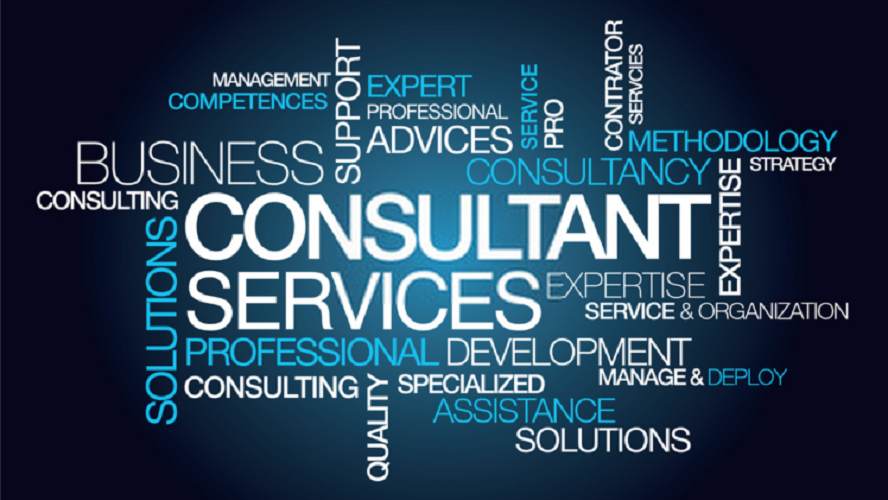Consulting is an industry that continually evolves in response to market demands, technological advancements, and shifting client expectations. As we look ahead to 2025, several key trends are shaping the future of consulting, and understanding these trends is essential for consultants who want to stay competitive and deliver exceptional value to their clients. From technological innovations to changing client needs, this article explores the most important consulting trends to watch in the coming years.
1. The Rise of Artificial Intelligence and Automation
Artificial intelligence (AI) and automation are expected to play a major role in the consulting industry by 2025. Consultants will increasingly rely on AI tools to streamline processes, analyze data, and improve decision-making. AI can be used to automate repetitive tasks, optimize workflows, and enhance data-driven insights, enabling consultants to focus on high-value strategic work.
How AI is Impacting Consulting:
- Data Analysis: AI can quickly analyze large datasets to identify trends, patterns, and opportunities, providing consultants with insights that would be time-consuming for humans to gather manually.
- Automation of Routine Tasks: Consultants can use automation tools to handle administrative tasks such as scheduling, reporting, and document management, freeing up more time to focus on delivering strategic value.
- Personalization: AI-driven tools will enable consultants to offer more personalized recommendations, tailored to each client’s unique needs and challenges.
As AI continues to advance, it will become increasingly integral to consulting firms’ operations and client offerings. Consultants who embrace these technologies will likely gain a competitive edge.
2. The Growth of Remote and Hybrid Consulting Models
The COVID-19 pandemic accelerated the shift toward remote and hybrid work, and the consulting industry is no exception. By 2025, remote and hybrid consulting models will likely become the norm rather than the exception. Consultants will have to adapt to working with clients and teams from different locations, time zones, and cultures.
Key Changes in Consulting Work Models:
- Remote Work Flexibility: More consultants will work from home or other locations, offering clients the flexibility to engage with consultants globally. This reduces costs and allows for a more diverse talent pool.
- Virtual Collaboration: Consulting firms will invest in advanced collaboration tools (like virtual whiteboards, video conferencing, and cloud platforms) to facilitate seamless communication and collaboration with clients.
- Global Talent Pool: Remote work opens the door for consultants to work with clients and colleagues from around the world. It allows consulting firms to tap into a broader talent pool with specialized expertise that may not be available locally.
This shift to remote and hybrid models will require consultants to refine their digital communication skills and stay proficient with collaboration technologies.
3. Increased Demand for Specialized Expertise
As industries become more complex and competitive, clients will increasingly seek consultants with deep expertise in specific areas. In 2025, generalist consultants may find themselves at a disadvantage, while specialists with niche skills will be in high demand.
How to Thrive with Specialized Expertise:
- Industry-Specific Knowledge: Consultants with deep knowledge of specific industries (e.g., healthcare, finance, technology) will be sought after for their ability to offer targeted solutions and insights.
- Technical Expertise: As technology continues to evolve, consultants who specialize in areas like cybersecurity, AI, blockchain, and data analytics will have a competitive advantage.
- Advanced Skills: Expertise in emerging fields such as sustainability, digital transformation, and regulatory compliance will be essential for consultants looking to stay relevant and add value to clients.
In 2025, clients will likely prefer consultants who understand the nuances of their industry and can provide highly customized solutions.
4. The Emphasis on Sustainability and Corporate Social Responsibility (CSR)
Sustainability and corporate social responsibility (CSR) will be significant drivers of change in the consulting world by 2025. Businesses are becoming increasingly aware of the environmental, social, and governance (ESG) factors that impact their operations. Consultants will be expected to help organizations navigate the complexities of sustainability and integrate ESG practices into their business strategies.
Consulting’s Role in Sustainability:
- Sustainable Business Practices: Consultants will play a critical role in advising businesses on how to reduce their environmental footprint, improve energy efficiency, and promote sustainable supply chains.
- ESG Strategy Development: Consultants will work with companies to develop and implement strategies that align with ESG goals, such as improving diversity, reducing carbon emissions, and enhancing corporate governance.
- Green Technology and Innovation: There will be increased demand for consultants with expertise in green technologies and innovations that help organizations meet sustainability goals.
By 2025, sustainability consulting will likely become an integral part of many firms’ offerings, as clients increasingly demand that businesses prioritize environmental and social responsibility.
5. The Growth of Subscription-Based Consulting Services
Subscription-based consulting models are gaining traction as an alternative to traditional project-based billing. In 2025, more consulting firms may adopt this model, offering clients continuous access to expertise and support for a fixed monthly fee. This model provides predictability in pricing for clients while enabling consultants to build long-term relationships with recurring revenue streams.
Benefits of Subscription-Based Consulting:
- Continuous Value Delivery: Clients can benefit from ongoing access to consulting services, rather than a one-time project. This can help build deeper, more sustained relationships between consultants and clients.
- Predictable Revenue for Consultants: Subscription models offer more predictable revenue for consulting firms, which can be beneficial for business planning and growth.
- Flexibility and Customization: Clients can receive personalized services and advice tailored to their evolving needs, allowing for a more flexible approach to problem-solving.
Subscription-based consulting is likely to continue growing, particularly for firms that offer ongoing support in areas like IT, HR, or marketing.
6. Data-Driven Decision Making and Analytics
As organizations increasingly rely on data to drive their decisions, consultants who are proficient in data analytics will be in high demand. In 2025, data-driven consulting services will become more integral to the work that consultants do, with an emphasis on using data insights to inform strategies and improve business outcomes.
How Data Analytics Will Shape Consulting:
- Improved Decision-Making: Consultants will use advanced data analytics tools to help clients make more informed decisions, identify patterns, and optimize their operations.
- Predictive Analytics: With the power of AI and machine learning, consultants will use predictive analytics to forecast future trends, assess risks, and guide strategic planning.
- Real-Time Insights: Data analytics will allow consultants to provide real-time insights into business performance, enabling clients to make faster, more agile decisions.
Consultants with expertise in data analysis, machine learning, and big data will be in high demand as companies seek to harness the power of data for competitive advantage.
7. Focus on Client Experience and Relationship Building
As the consulting market becomes more competitive, delivering a high-quality client experience will become a key differentiator. By 2025, consultants will need to focus more on relationship-building, offering personalized services that are tailored to each client’s specific needs.
Enhancing the Client Experience:
- Personalized Consulting Services: Clients will increasingly expect customized solutions that cater to their unique business challenges, rather than one-size-fits-all strategies.
- Ongoing Client Support: Consultants will need to provide continuous value through regular check-ins, follow-up consultations, and long-term partnership-building efforts.
- Technology for Client Engagement: Tools such as client portals, virtual collaboration platforms, and real-time feedback systems will help consultants stay connected with clients and ensure that their needs are met consistently.
By 2025, a focus on client experience will be vital to building long-lasting relationships and ensuring client satisfaction.
Conclusion
The future of consulting in 2025 is full of exciting possibilities, driven by technological advancements, shifting client expectations, and the growing emphasis on sustainability and specialized expertise. To stay competitive, consultants must embrace emerging technologies like AI and automation, adopt flexible work models, specialize in niche industries, and focus on delivering data-driven insights and personalized client experiences. By staying ahead of these trends, consultants will be well-positioned to thrive in an increasingly dynamic and evolving marketplace.

